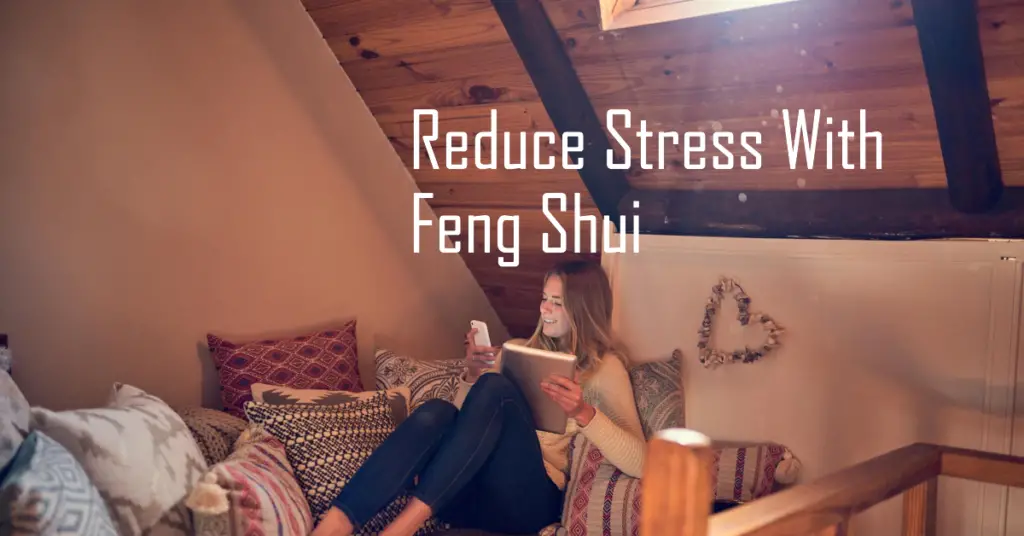Understanding the Connection Between Feng Shui and Stress Reduction
In our fast-paced, high-pressure world, stress has become the unwelcome companion of far too many people. From demanding jobs and family responsibilities to the constant bombardment of news and social media, it can feel like there’s no escape from the pressures of modern life.
However, what if I told you that the key to reducing stress could be found right in your own home? That’s where the ancient principles of feng shui come into play.
Feng shui is the Chinese art of harmonizing the flow of energy, or “chi,” within a given environment. And when applied intentionally, it can transform your living space into a true oasis of calm and rejuvenation.
You see, our homes are a direct reflection of our internal states. The physical clutter, disorganization, and imbalances within our living spaces mirror the mental and emotional clutter we experience on a daily basis. Conversely, by optimizing the energy of our homes through feng shui, we can create an environment that actively supports our wellbeing and helps us manage stress more effectively.
Tip #1: Clear the Clutter and Unfinished Projects
One of the most powerful ways to use feng shui to reduce stress is by clearing out the clutter and addressing any unfinished projects in your home. Clutter, whether it’s physical or mental, acts as a constant source of low-level stress and anxiety. It creates a sense of overwhelm, reminds us of our unfinished tasks, and can even disrupt the flow of positive energy throughout our living spaces.
Think about it this way: every time you see a pile of paperwork, a half-completed DIY project, or an overflowing junk drawer, your subconscious mind registers it as something that needs to be dealt with. This puts your body on high alert, triggering the release of stress hormones like cortisol.
By taking the time to methodically clear out the clutter and tie up any loose ends, you’re not only creating a more visually appealing and organized home, but you’re also sending a powerful message to your brain and body that it’s time to relax and unwind.
Start by tackling one room or area at a time, being mindful to sort, purge, and properly dispose of or organize anything that no longer serves you. As you work, visualize the stagnant energy being cleared away to make room for a fresh, revitalizing flow.
Tip #2: Optimize Your Bedroom for Better Sleep
When it comes to reducing stress, few things are as important as getting high-quality, restorative sleep. And in the realm of feng shui, the bedroom is considered the ultimate sanctuary – the place where you go to recharge and rejuvenate.
To create a truly stress-relieving bedroom, start by evaluating your sleeping environment. Remove any electronics, such as TVs, laptops, or smartphones, as these devices emit stimulating electromagnetic frequencies that can disrupt your sleep. If possible, keep your work materials and work-related paraphernalia out of the bedroom entirely.
Next, consider the placement and organization of your furniture. Ideally, your bed should be positioned in a “command” position, where you can see the door from where you’re sleeping. This enhances your sense of safety and control, helping you feel more at ease.
Pay attention to the colors and textures you’ve incorporated as well. Soothing, nature-inspired hues like blues, greens, and soft neutrals can have a calming effect, while bold, stimulating colors may keep your mind racing. Opt for plush, cozy bedding and minimize harsh lighting sources.
Finally, clear out any clutter or unfinished projects from under your bed. This stagnant energy can interfere with the restorative power of your sleep.
By creating a serene, harmonious bedroom sanctuary, you’re setting the stage for deeper, more rejuvenating rest – a crucial component of stress reduction.

Tip #3: Harness the Power of Meditation
In the busy, overstimulated world we live in, the ability to quiet the mind and focus on the present moment is an invaluable tool for managing stress. And when it comes to meditation, feng shui can provide a powerful assist.
According to the principles of feng shui, the knowledge/spirituality area of your home is the optimal space for meditation and self-reflection. This area is associated with wisdom, self-cultivation, and inner peace – qualities that can help you tap into a profound sense of calm and centeredness.
To locate your home’s knowledge/spirituality area, refer to the feng shui bagua map. Typically, this section will be in the back center of your living space. If that’s not possible, you can also designate another area, such as your bedroom or a quiet corner, as your meditation spot.
Once you’ve identified the ideal location, infuse the space with elements that support your practice. Consider adding a comfortable meditation cushion or chair, soothing lighting, and perhaps a small altar with objects that hold personal significance for you. You might also want to incorporate the color blue, which is associated with wisdom and inner reflection.
As you settle into your meditation routine, allow the energy of this specially curated space to wash over you. Breathe deeply, quiet your chattering mind, and let the stresses of the day melt away. Over time, you may find that your meditation practice not only reduces your immediate feelings of anxiety but also helps you develop greater resilience to stress in all areas of your life.

Tip #4: Smudge Your Home (and Yourself)
Energetic cleansing, or “smudging,” is a powerful feng shui technique for releasing negative, stagnant energy and restoring a sense of balance and calm. The act of slowly burning sacred herbs, like white sage or palo santo, is believed to help clear the aura of your home (and yourself) from any emotional or psychic debris that may be contributing to stress and anxiety.
Think of smudging as a spiritual reset button. Just as you might deep clean your living space to eliminate physical clutter, smudging allows you to clear away the invisible, energetic clutter that can weigh heavy on your psyche.
To smudge your home, begin by opening all the windows and doors to allow the smoke and negative energy to freely flow out. Light your sage or palo santo stick, and slowly make your way through each room, directing the smoke into the corners, closets, and other spaces where energy can become stagnant.
As you do this, visualize the smoke clearing away any feelings of stress, worry, or tension. You can even speak aloud affirmations, such as “I release all that no longer serves me, and I welcome in a sense of peace and tranquility.”
Don’t forget to smudge yourself as well! Simply waft the smoke over your body, from the top of your head down to your feet, allowing it to cleanse your aura.
Consistent smudging, even just once a week, can have a profound impact on the energetic signature of your living space, helping you and your family feel more grounded, centered, and at ease.

Tip #5: Boost the Energy of Your Health Area
In the world of feng shui, the health area of your home is considered the central hub that influences the energy and wellbeing of every other zone. By intentionally strengthening this critical area, you can create a ripple effect of reduced stress and enhanced vitality throughout your living space.
To locate your health area, refer to the feng shui bagua map and identify the center section of your home. This is where you’ll want to focus your energy-boosting efforts.
One simple way to energize this zone is by incorporating the element of water. Water is associated with fluidity, adaptability, and the ability to flow around obstacles – all qualities that support stress reduction. Consider adding a small tabletop fountain, a decorative bowl of water, or even a potted plant that thrives in moist soil.
You can also introduce the element of wood, which represents growth, renewal, and resilience. Bring in some lush, vibrant greenery, whether in the form of leafy plants or framed nature artwork. The visual and energetic presence of these living things can have a profoundly soothing effect.
Finally, make sure the health area of your home is clean, clutter-free, and well-lit. Stagnant, dimly lit spaces tend to harbor negative energy, so keep this central zone bright, airy, and unobstructed.
By focusing your feng shui efforts on strengthening the health area, you’re laying the foundation for a home that actively supports your wellbeing and helps you manage stress with greater ease.
About the Author
Nia Ivy is an intuitive empath, reiki healer, and certified yoga instructor. She teaches workshops on energy healing, developing intuition, and using yoga and meditation to tap into higher states of consciousness. Nia believes we all have innate healing abilities if we cultivate the self-awareness to access them. Her own spiritual awakening came through consistent mindfulness practices. She aims to hold space for others to find their inner light.




